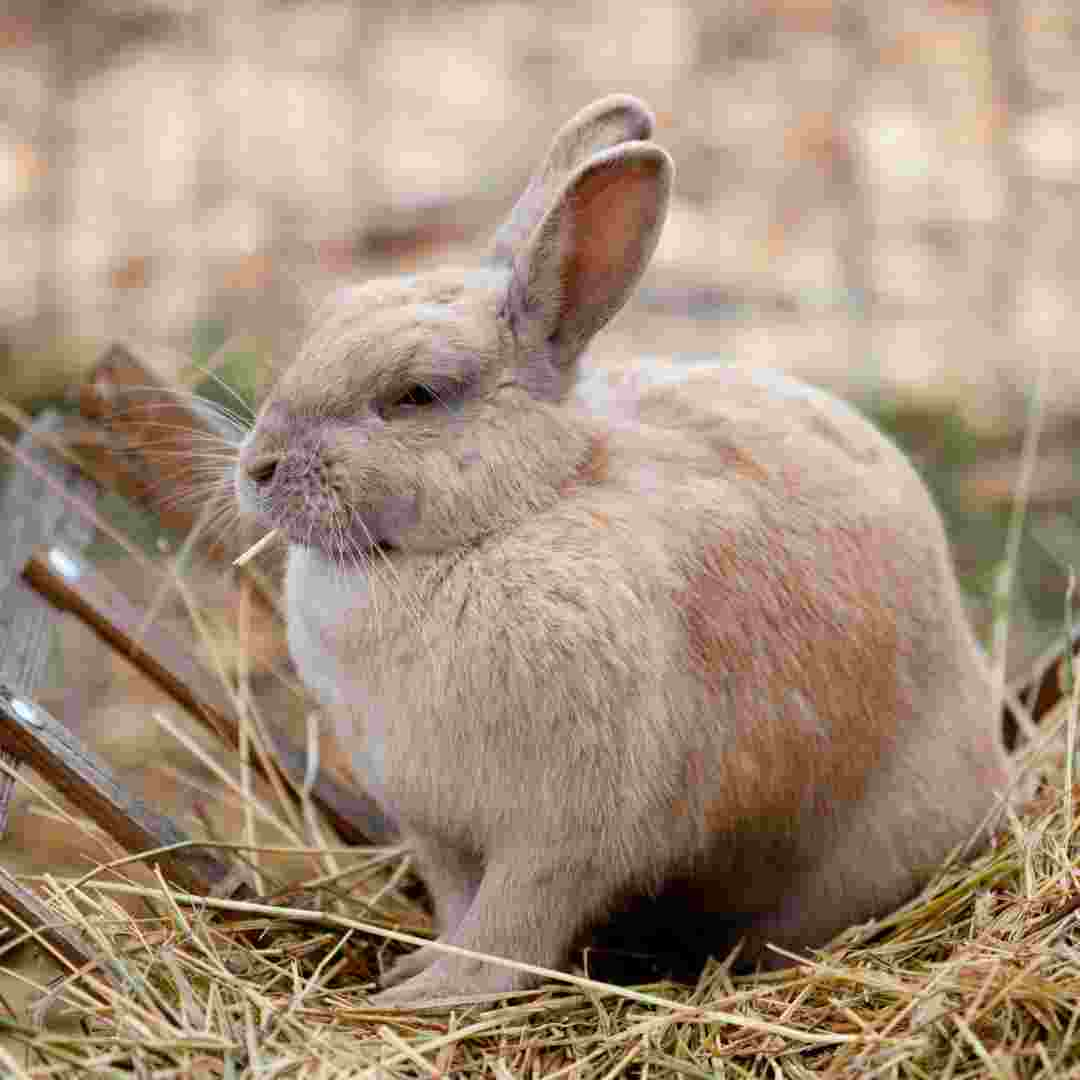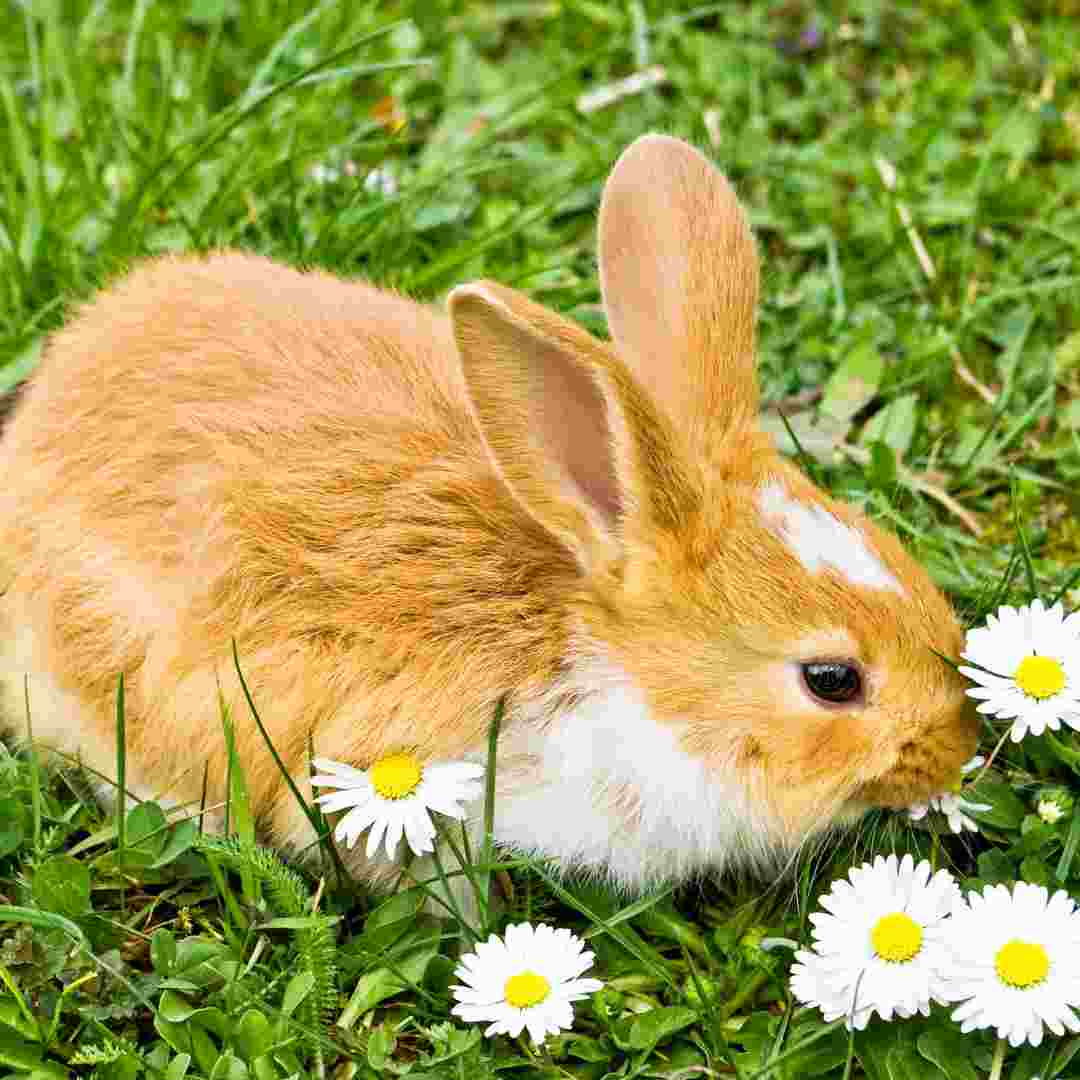Contents Table
Introduction
Basic Rabbit Nutrition: What Should They Eat?
Explore the Benefits of Feeding Your Rabbit Variety
Rabbit Pellet Feeding Pros and Cons
Rabbits Benefit from Fresh Vegetables and Fruits
Rabbit Treat Overfeeding Dangers
Q&A
Conclusion
Introduction
Herbivores like rabbits eat exclusively plants. Carrots are their favourite, although they also like other vegetables, fruits, and hay. A varied diet is essential for rabbits' health. This page discusses rabbit diets and how to feed them well.
Basic Rabbit Nutrition: What Should They Eat?
Rabbits need a special diet to keep healthy and happy. Any rabbit owner must understand rabbit diet. Understanding what your rabbit needs to eat and why will help you care for them.
Only plants are eaten by herbivore rabbits. Hay, fresh vegetables, and a few pellets should be their diet. A rabbit's diet should be mostly hay, which provides fibre and aids digestion. Fresh vegetables might create digestive difficulties if fed in excess. Pellets are high in calories and can cause obesity, so offer them sparingly.
Along with hay, vegetables, and pellets, rabbits need clean water at all times. Water improves their digestive system and hydration.
Moderate rabbit treats are also advised. Healthy, low-sugar treats include fruits and vegetables. Treats should not exceed 10% of a rabbit's diet.
By learning rabbit dietary basics, you can ensure your rabbit is healthy and happy. To keep your rabbit healthy and active, feed it hay, fresh veggies, pellets, and treats.
Explore the Benefits of Feeding Your Rabbit Variety
Rabbits are cherished pets that need a balanced diet to prosper. Hay and pellets are vital to a rabbit's diet, but other items can improve health. Here are the benefits of feeding your rabbit a range of foods.
Offering your rabbit a variety of diets can prevent boredom. Intelligent rabbits get bored with the same diet every day. Serving a variety of foods can keep your rabbit interested in its meals.
Offering a variety of foods helps your rabbit acquire all the nutrition it needs and stimulates its mind. Hay and pellets give critical nutrients, but they may not provide all the vitamins and minerals your rabbit needs. Offering a variety of foods, such fresh vegetables and fruits, can help your rabbit eat well.
Diversifying diets can prevent stomach disorders. Carbohydrate-rich diets can cause intestinal troubles in rabbits. Offering a variety of foods can help your rabbit eat a balanced, low-carb diet.
In conclusion, feeding your rabbit a variety of meals has several benefits. It can avoid boredom, intestinal difficulties, and guarantee your rabbit gets enough nourishment. Offering a variety of foods can help keep your rabbit healthy and happy.
Rabbit Pellet Feeding Pros and Cons
Rabbit pellets might help your pet acquire enough nutrition. Before feeding your rabbit pellets, examine the advantages and downsides.
Pros
Feeding rabbit pellets is beneficial since they are nutritionally balanced. Pellets give rabbits all the vitamins and minerals they need to stay healthy. They also include fibre, which helps rabbits digest. Pellets are handy and easy to store, making them ideal for busy pet parents.
Pellets also deteriorate less than other foods. This allows you to buy them in bulk and preserve them without spoiling.
Cons
One downside of rabbit pellets is their high calorie content. Lack of exercise can cause weight gain and other health issues in rabbits. Keep track of your rabbit's weight and regulate pellet intake.
Pellets may bore your rabbit. Without enough variety, your rabbit may get bored and quit eating. Add fresh veggies and goodies to your rabbit's diet to prevent this.
In conclusion, feeding your rabbit pellets can help it acquire enough nourishment. Before choosing, weigh the advantages and downsides. If you feed your rabbit pellets, watch its weight and add fresh vegetables and rewards.
Rabbits Benefit from Fresh Vegetables and Fruits
The herbivorous rabbit eats fresh vegetables and fruits. This diet gives them the minerals and nutrients they need to stay healthy. Fresh veggies and fruits are beneficial to rabbits.
Fresh fruits and vegetables are rich in vitamins and minerals. These nutrients boost a rabbit's immune system and coat shine. Their digestive system will also benefit from dietary fibre from fresh vegetables and fruits.
Second, fresh veggies and fruits provide your rabbit diversity. New veggies and fruits can keep rabbits interested in their meals. Since kids will eat more variety, this can help them avoid obesity.
For mental stimulation, give your rabbit fresh veggies and fruits. Naturally curious, rabbits like trying new cuisines. Give them a variety of fresh veggies and fruits to keep them cognitively active.
In conclusion, feeding your rabbit fresh produce has several benefits. It can keep them mentally stimulated and interested in their meals while providing them with vitamins and minerals. Therefore, provide your rabbit a balanced diet with fresh vegetables and fruits.
Rabbit Treat Overfeeding Dangers
As cherished pets, rabbits might be tempted to receive gifts for good behaviour or attention. Treats can help you bond with your rabbit, but too much can be harmful.
Rabbits should eat hay, fresh vegetables, and a few pellets as herbivores. Treats are high in sugar and fat and can create digestive troubles, so limit their intake. Too many snacks can create obesity, which can cause heart and joint problems.
In addition, snacks can damage teeth. Rabbit teeth grow continuously, so they eat hay and other fibrous things to wear them down. Too many treats can cause tooth overgrowth, pain, and difficulty eating.
Finally, treats can affect behaviour. If your rabbit is habituated to goodies, they may misbehave. It can be hard to train them and stressful for you and your pet.
Finally, snacks can help you bond with your rabbit, but too many can be harmful. Keep your rabbit's diet balanced and treat them sparingly.

Q&A
What do rabbits eat?
Rabbits eat fresh veggies, hay, and pellets made for them.
2. Which vegetables rabbits can eat?
Carrots, celery, broccoli, kale, and spinach are rabbit-friendly.
3. Is rabbit hay necessary?
Yes, rabbits need hay. It contains fibre and aids digestion.
4. Are there any rabbit-unsafe foods?
Processed foods like chips and candy are bad for rabbits. They should also avoid sugary or fatty foods like cake and ice cream.
5. How much should I feed my rabbit?
You should feed your rabbit based on its size and activity. The average rabbit should eat 1/4 cup of pellets, fresh veggies, and hay daily.
Conclusion
As herbivores, rabbits eat largely plants. They like fresh produce, hay, and leafy greens. Some fruits and cereals are also popular. Your rabbit needs a balanced diet to keep healthy and happy.
